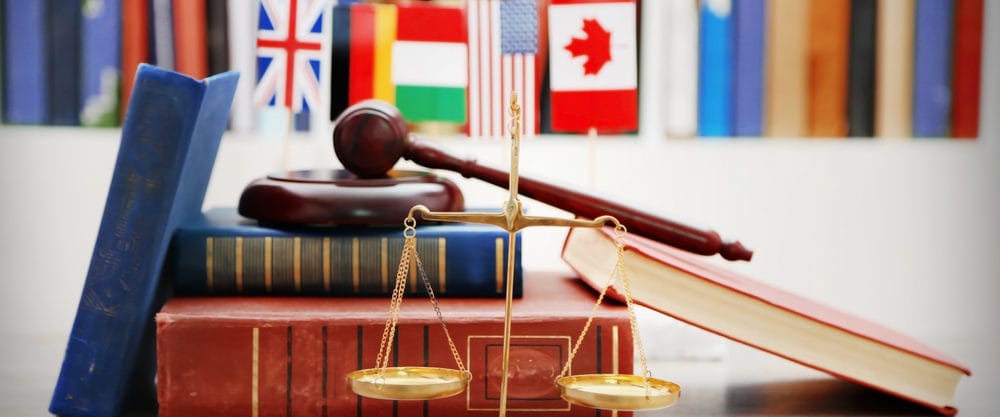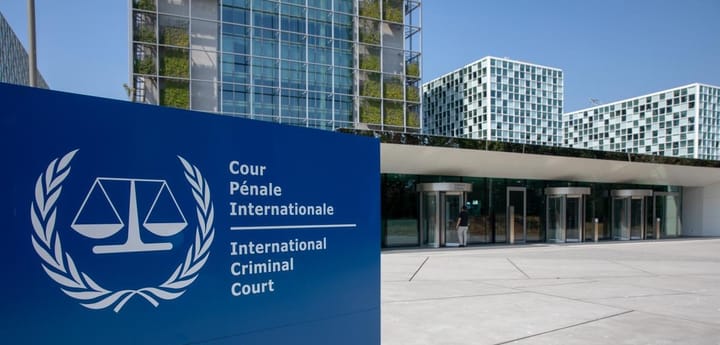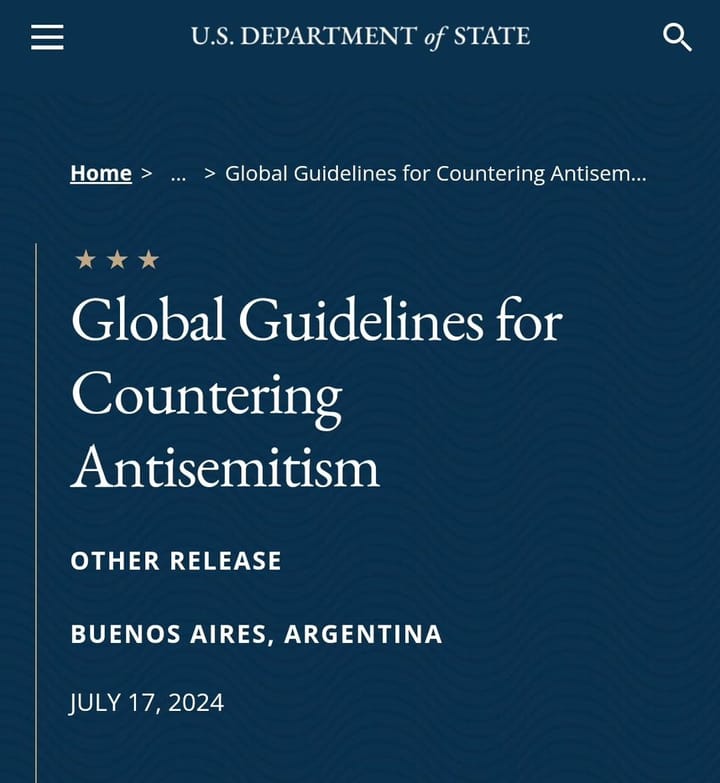What if October 7 Happened to Saudi Arabia or Türkiye: An International Law Perspective

The October 7 Massacres involved a non-state actor (Hamas and other militant groups in Gaza) launching a killing spree on their neighbor, a sovereign state, Israel. What does this mean under international law? And where does each of the the distinct parties stand under international law. Would Saudi Arabia or Türkiye have had different merits if the October 7 Massacres happened to their citizens on their territory?

What International Law Indicates
International law has no enforcer and no fixed statutes, as the case is with municipal law (domestic or national law)[1]. This leaves the nation-state as the primary actor of international law, its interpretation, and application. Thus, some legal theorists construe international law as nothing but the "law for nations and states."[2].
Sovereignty and territorial integrity are two concepts that place the nation-state at the forefront of international law. Every state is considered equal in international law, and they have absolute control over the territory they are recognized to hold.
Thus, the nation-state is the primary player in international law. Armed groups, guerilla groups, and terror organizations have no direct protection under international law. The result of this is that international law cannot be easily invoked against a sovereign state in defense of a non-state actor in their recognized territory.
The three key components of international law that shape the power of laws states:
1. Treaties between states
2. Customary international law and
3. Enforceable UN Security Council peace and security directives in response to a breach of peace or act of aggression.
Treaties are international agreements, between states that are governed by international law. Treaties are locally enforced by states according to the level of consent they gave in a treaty. Most treaties entrench the power of states, and provide no coverage or shield to non-state actors and guerilla groups.
Enforceable UN Security Council directives are specific and strict. They come up when an objective incident occurs that requires action as prescribed by Chapter VII of the UN Charter. In this case, the Security Council plays the role of enforcer and designates an appropriate body to enforce them. First of all, they are rare. And secondly, they can only be passed if none of the five permanent UN Security Council members veto it. These are the superpowers – China, France, Russia, the United Kingdom, and the United States. Thus, their invocation is uncommon.
That means most issues between states and non-state actors are to be resolved under customary international law. Customary international law is a body of rules that have evolved over time to define the appropriate conduct of states and other actors in international relations. These are normative practices that shape the way states deal with incidents and situations pertaining to their territory and interests.
Hence, any attack by a non-state actor is likely to be resolved by normative international law. This involves precedents and other legal standards that have evolved over time. There are also significant power dynamics that come into play when applying customary international law.
Customary International Law & An Act Like The October 7 Massacres
An act like the October 7 Massacres mandates two main things:
1. Primary act: The affected state, by virtue of the principles of sovereignty, arrests and holds perpetrators of the acts to account.
2. Secondary act: To secure the realm and take reasonable measures to ensure that it does not happen again.
The preferred act, according to international law which is based on the use of negotiations rather than violence is to demand the surrender of a non-state actor that engages in mass murder. Thus, the first thing an affected state must do is to demand the unconditional surrender of non-state actors involved in an act of terror. When they surrender, they will gain some protections under international law as combatants.
In cases where the preferred option does not work, a state is permitted to use force to hold the perpetrators to account. This will typically involve going after them, wherever they are, to arrest them and/or eliminate them where the need arises.
Thirdly, a state is empowered to take actions – including actions outside their territory to crush a non-state actor that has engaged in a terror action on their territory or against their civilians. This has been the basis for many military occupations in different parts of the world – including Iraq, Afghanistan, and other places.
Customary international law leaves many gaps for maneuver. And most of the parameters are not strictly fixed. Hence, states can leverage their upper hand under international law to set their own parameters and take actions.
What if It Happened to Saudi Arabia or Türkiye
Scenario 1: Three thousand heavily armed Houthi fighters were airlifted into the Najran province in the extreme south of Saudi Arabia. Upon dropping off outside Hubuna, a small settlement north of Najran City, the Houthi fighters moved in different directions on motorbikes, Toyota pickups, and any car they could snatch. Their orders from their leaders in Yemen is to shoot at anyone on sight because no one on Saudi soil is "innocent". Kill anyone – Muslim or non-Muslim.
Scenario 2: Intelligence reaches the desk of the head of the Turkish National Intelligence Organization (NIO) that a breakaway group in the PKK's armed wing is preparing to launch a major attack. They are simply not in favor of the truce being reached by leaders of different Kurdish militant groups. They assert that these peace deals will kill the dream of a Greater Kurdish nation. Thus, their intended attack is meant to draw the world's attention to the group. To achieve this, the radical PKK faction hopes to launch a suicide attack that will include a hundred of their best marksmen who have already been paid for the operation. Their job is to find the weakest spot in Turkey and unleash their rage. This will involve shooting to kill any Turk until these hitmen are killed or run out of ammunition.
What are the legal merits in both cases for the state and non-state actors? What backs them under international law, and how can they reasonably protect their civilians?
These are the merits:
1. International Law will be on the Side of Saudi Arabia and Türkiye: If the Houthis or PKK members represented a sovereign state, the incident would descend into a war between the two states, and they would both be able to open diplomatic channels in the United Nations and/or other top international forums. However, as it stands, Houthis and the PKK are both non-state actors who are guerilla groups with their own agendas. Hence, customary international law will allow Turkiye and Saudi Arabia to go out and hold the perpetrators accountable.
2. Hostis Humanis Generis Status: By default, Houthis and the PKK will take up the label of hostis humanis generis (Latin for “enemies of all humans” or persons commit acts that will be objectively considered a crime anywhere in the world) for an armed action against a sovereign state. That is because the international community backs sovereign states. Thus, it does not matter how much popularity or justification these groups may have. They will both be considered enemies of all sovereign states. This stops sovereign states from directly aiding the PKK or the Houthis. The best a sovereign state can do is to support them covertly. However, in principle, an armed non-state actor engaged in terrorism.
3. Permission for States to use “Necessary” Force: In holding perpetrators accountable for mass terrorist actions, there is no explicit requirement to use "limited" force. The standard that is generally accepted is to use "necessary" force. This is often left to the affected state to define – in this case, Saudi Arabia and Türkiye. Obviously, the international community involving states and non-state actors will inevitably seek to protect innocent civilians. However, as a war, there is a limit to what the international community can do to stop military action to hold non-state actors involved in terror to account.
4. Permission of Proactive and Preventive Action: The United Nations' laws, which discourage violence, also support the use of decisive force to end future sporadic outbreaks of war. Thus, customary international law will allow Türkiye and Saudi Arabia to occupy regions where these non-state combatants may be hiding. Normally, in cases where these combatants hide in sovereign states, such states can invoke their territorial integrity to estop a state seeking to enter to pursue armed foreign non-state combatants. However, in other cases, it escalates into a civil war, which will typically be resolved by the United Nations or some other top-level diplomatic body.
Applying it All to Israel’s War in Gaza
As of the time of this publication, an estimated 42,000 Gazans have been killed in Israel’s war in Gaza. It is not clear how many of them are combatants and how many are civilians. However, there is evidence that both combatants and civilians have been killed in the war.
But for the October 7 massacres, all the deceased would be alive – combatant or civilian.
Israel has customary international law on her side.
Hamas, a non-state actor, was involved in an act of mass killing, torture, and terrorism on October 7, 2023. Israel, the state actor, is empowered by international law to hold perpetrators of the act individually accountable.
These perpetrators have gone into hiding in Gaza or left the Strip altogether. Whatever it is, they are liable, and if they turn themselves in peacefully, they will gain some protection under international law as combatants in a non-threatening position. Since Israel does not have the death penalty, perpetrators of October 7 who turn themselves in will be protected from execution.
Coupled with the fact that Hamas still holds hostages, the threat of Hamas as an offending armed non-state actor can be considered ongoing. Thus, customary international law grants Israel more powers to knock on every door in Gaza and demand their hostages.
Also, Israel has the powers, under customary international law, to ensure that October 7 does not happen again. This involves destroying the military infrastructure used by Hamas and all its accessories.
Furthermore, Gaza is a disputed territory – neither owned by Egypt nor Israel; Hamas fighters are in a neutral zone, which eliminates the limits placed on Israel as a state actor. If Hamas members had escaped into Egypt or Saudi Arabia, Israel's pursuit of the perpetrators would have been subject to some limitations. However, there is no such shield to protect Hamas under international law.
Conclusion
There is a reason Türkiye, Saudi Arabia, and other states are limited in halting Israel's actions in the Gaza war. That is because there is a body of international law that protects a state actor like Israel and any of these states against a non-state guerilla group that uses terror and other forms of mass violence. If the Houthis had attacked Saudi Arabia or the PKK had executed an October 7 attack against Türkiye, these states would have relied on these elements of international law. These powers result from states' right to pursue non-state armed militants who attack them and the obligation to destroy long-term threats posed by such terrorist groups. Saudi Arabia and Turkiye would have faced the same legal realities Israel is enduring today if they were hit by an October 7-like attack against their civilians in their borders. It is even possible they might have used much more deadly force than Israel is using in Gaza. The best path for Hamas in this situation is to surrender to save their lives and the lives of Gazans. Japan surrendered in 1945, and built an advanced and prosperous stat a few decades later. There is nothing shameful about surrendering under these circumstances.
[1] Jack Goldsmith & Daryl Levinson. "Law for States: International Law, Constitutional Law, Public Law" Harvard Law Review 122 (7), 2009 p1793
[2] Rosalyn Higgins. Themes & Theories. (Oxford: Oxford University Press, 2012) p98




